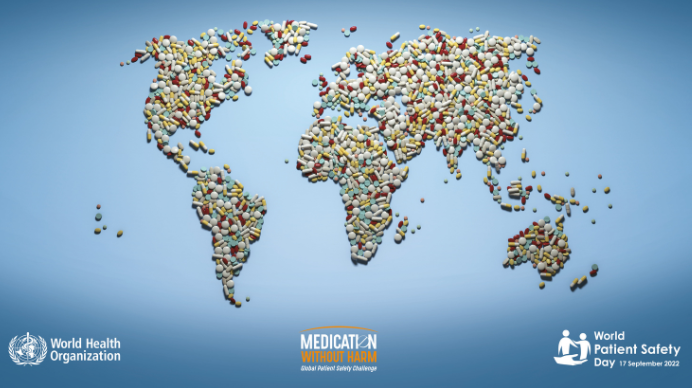
Madrid - September 17, 2022. "Medical students join the medication use system during their clinical practices at the hospital, so they are a target group for preventive interventions on medication errors." These are the words of Dr. Eduardo Hornos, president of the Practicum Foundation and General Director of Practicum Script, who points at the therapeutic approach in early stages of medical training as a way to avoid future events. This way the Practicum Script clinical simulation team joins the World Health Organization (WHO) campaign for the World Patient Safety Day, which takes place on September 17.
The campaign is part of the 2017 WHO Global Challenge for Patient Safety. Since the historic report of the United States Institute of Medicine To Err is Human, the impact of medical error on morbidity and mortality has been noted. Today, according to WHO, unsafe medication practices are among its main causes. Most people take medications at some point in their lives and these drugs can cause serious damage, disability and even death if they are stored, prescribed or administered improperly. “In light of this —in the opinion of Dr Hornos—, clinical simulation constitutes a key asset to promote patient safety”.
The problem has a global significance and affects public health. WHO estimates its cost at 42,000 million dollars per year and warns that the current COVID-19 pandemic has aggravated the risk of medication errors and related harm. In this context, simulation is an active learning tool that reproduces clinical practice in a risk-free controlled and interactive context. “Practicum Script has scenarios and real patients that facilitate the acquisition of confidence and skills in the field of clinical safety and therapeutic decisions, including drug prescription”, says Dr Hornos. In addition, in 2023, the programme will add a new pool of treatment cases.
Medication errors occur when weak medication systems and/or human factors such as fatigue, poor environmental conditions or staff shortages affect affect the safety of the medication administration process. Dr Hornos, from his side, points out that "although many of these errors could be related to gaps in knowledge or to the aforementioned fatigue, a vast majority can be described as cognitive failures not only attributed to poor memory but to distortions in cortical perceptions related to clinical reasoning.
Satisfaction surveys of the Practicum Script clinical reasoning training programme reveal that students feel that this methodology bridges the gap between theory and practice and brings them closer to reality. Trainees often report that these cognitive training exercises, and even the debriefing sessions that their teachers develop through Practicum Mentoring, are more appropriate than lectures and other conventional theoretical activities to increase their confidence in treatment decision making and to reinforce their understanding of the medication administration process.
Simulation can help
Medications are the most widely utilised interventions in health care, and medication-related harm constitutes the greatest proportion of the total preventable harm due to unsafe care, let alone the economic and psychological burden imposed by such harm. Acknowledging this substantial burden and recognising the complexity of medication-related harm prevention and reduction, the third WHO Global Challenge for Patient Safety aims to reduce serious avoidable harm related to medication by 50% across the world in five years.
In this sense, "clinical simulation allows improving patient safety, as well as training certain cognitive processes and clinical behaviours, in addition to rehearsing shared clinical decision-making", explains Dr Hornos. “After a solid background with residents and specialists and a successful pilot study at undergraduate level —continues Dr Hornos—, today, the bulk of our efforts are concentrated on university-based training and for this purpose we have allied in the creation and validation of contents with prestigious references such as Imperial College London". Today Practicum Script is present in numerous faculties in Europe, the United States, Latin America and Singapore.
Our personalized help center enables you to obtain technical support and help for navigating through the site and using the program.